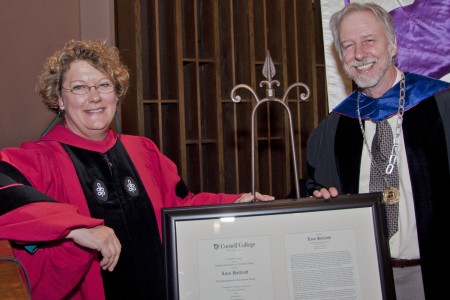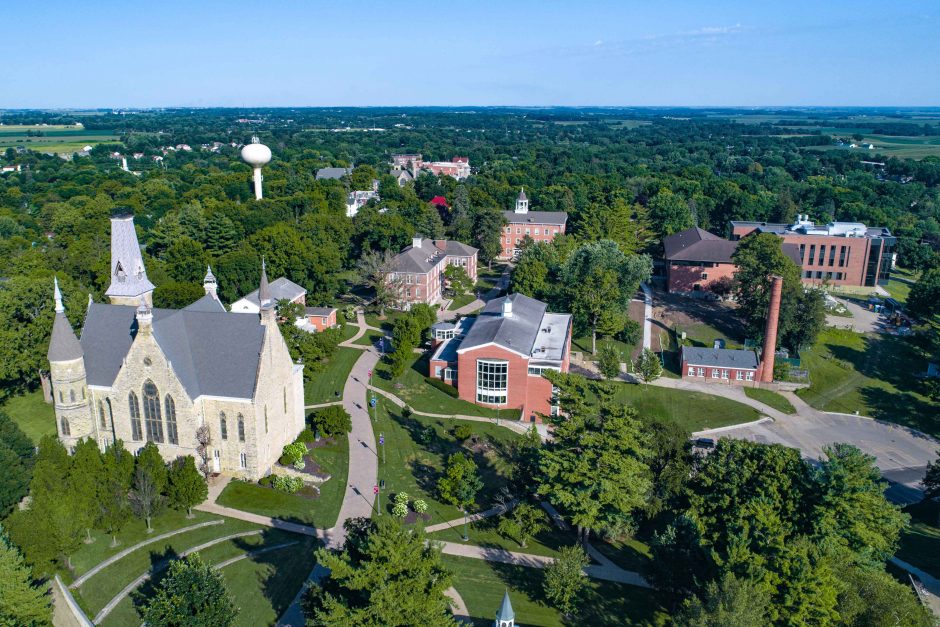Lois Hetland ’75, 2010 Distinguished Achievement Award
Lois Hetland, Class of 1975, art education professor at Massachusetts College of Art and Design and research associate at the Harvard Graduate School of Education’s Project Zero. As an undergraduate your prospectus for the Bachelor of Special Studies degree outlined a broad preparation in visual arts and music, which you followed with a fifth year of teacher education preparation with your father, Education Professor Mel Hetland.
View award presentation and acceptance speech

That preparation stood you well in nearly two decades of classroom teaching. You brought that knowledge and experience into your doctoral studies at Harvard and into your scholarly investigations. In all your professional engagements you sought to contribute to the old perplexing problem, How do we know? What is it to understand? These larger issues of cognition and developmental psychology—especially in the arts—have led you into new studies of how students learn and thus how we should teach.
You have shared the results of your research in six books, more than 70 papers and articles, and at many professional conferences. Your meta-analyses on the transfer of learning from arts to other subjects demonstrated the rigor of your research, which gives your work remarkable depth. You founded and directed at Harvard an internationally renowned Summer Institute for educators to explore the practical consequences of Project Zero’s research.
Conclusions from your work continue to stir wide and often passionate discussion among art educators. Media including National Public Radio, The New York Times, and PBS have featured your work. With the publication of your co-authored Studio Thinking, the art education community received a documented look at what art education actually contributes to learning and cognition, and what art students are actually taught.
Your work questions formerly held views claiming omnipresent “bonus” effects of the arts on learning in other subjects. Your perspective has shown that the cumulated scientific evidence for such a case is weak. Now with your fresh insights you continue to move on to the basic questions before educators: what do the arts teach and what do art students actually learn?
From your work, ripples of rethinking art education and cognition are moving around the world. You are currently co-principal investigator on a National Science Foundation project examining whether visual arts learning improves geometric reasoning. The capacity of the mind to imagine something new, so basic to the artistic world of creativity, may yet prove to be more basic to our understanding than we have assumed.
Your work demonstrates that we do not know as much about knowing as we should. However, today Cornell knows that Lois Hetland’s contributions to this field demonstrate that she has taken the best of a Cornell education into her professional life as an educator and researcher and in the process has become worthy of the college and the Alumni Association’s highest joint honor, the Distinguished Achievement Award.



